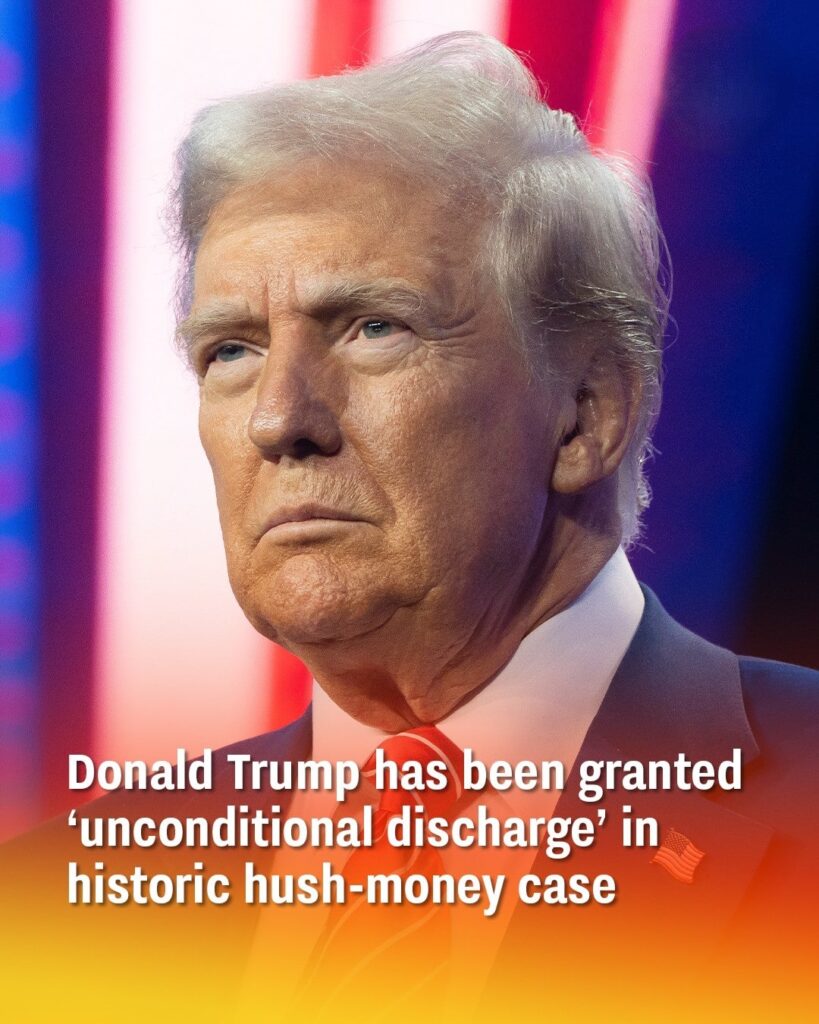Donald Trump was sentenced after the New York Court of Appeals denied his request to delay proceedings in his hush money case. The former president had been found guilty in May 2024 on 34 felony counts of falsifying business records related to a $130,000 payment to adult film star Stormy Daniels during the 2016 election. Trump denied the allegations, asserting his innocence throughout the trial.
Despite the potential for a prison sentence of up to four years, Judge Juan Merchan issued an unconditional discharge. This type of sentence, typically reserved for less severe offenses, means Trump will not serve jail time but will carry the conviction on his record. The ruling surprised many, as the charges were tied to alleged efforts to influence the outcome of the 2016 presidential election.
Trump’s legal team argued that proceeding with the sentencing during the transition period would jeopardize the president-elect’s ability to prepare for office effectively. However, prosecutors countered that no individual, including a president-elect, is above the law or immune to criminal proceedings. The court sided with the prosecution, affirming that the criminal justice process must continue irrespective of Trump’s impending assumption of office.
Trump is set to be inaugurated on January 20, 2025, marking the beginning of his second term in office. The case has reignited discussions about the legal and ethical implications of holding elected office while facing criminal convictions, as well as the broader implications for the justice system and the presidency.





